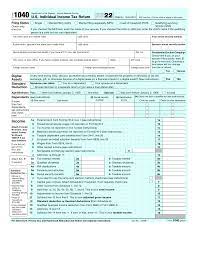 A recent decision from the Northern District of New York has a useful summary of the law of contribution and indemnity in Fair Housing Act cases. Clover Communities Beavercreek, LLC et al v. Mussachio Architects P.C. et al, 2023 WL 3864965 (N.D.N.Y. June 7, 2023). For the plaintiffs, who were developers and owners, there is a happy ending, but the sunny result is shadowed by an important mistake carried on from earlier cases. Before we get there, a little backgound is in order.¹
A recent decision from the Northern District of New York has a useful summary of the law of contribution and indemnity in Fair Housing Act cases. Clover Communities Beavercreek, LLC et al v. Mussachio Architects P.C. et al, 2023 WL 3864965 (N.D.N.Y. June 7, 2023). For the plaintiffs, who were developers and owners, there is a happy ending, but the sunny result is shadowed by an important mistake carried on from earlier cases. Before we get there, a little backgound is in order.¹
The FHA establishes accessibility standards for multi-family housing. It is illegal to fail to design or construct multi-family housing that does not meet those standards. The parties that can be liable for this kind of illegal contract are the architect, the general contractor (and perhaps subcontractors) and the owner. Among these three parties liability may or may not overlap. It is not uncommon for the plans to be wrong, for the general contractor to have made mistakes on things where the plans were correct and for the owner to have ignored the need for accessible design altogether.
In ordinary construction defect cases, liability is divided among these parties based on state law rules of contribution and indemnity. With contribution liability is shared based on the relative degree of fault. With indemnity one party takes all the liability. These are matters of state law, not federal law, and they vary from state to state. It is also common for these parties to agree among themselves on who will be liable for what. This is especially true where everyone has insurance and dividing up the insurance coverage makes sense.
This very common division of liability is a source of disagreement in cases brought for violations of the FHA’s design and construction rules. Some courts hold that one of the liable parties – usually the owner or developer – cannot transfer their liability to another party even if that party is completely at fault for the design/build failure. This is directly contrary to the state law principle that every party bears their fair share of the liability, or at least the share they agreed to bear in a contract.
This brings us to Judge Sannes’ opinion in Clover Communities. She begins with a look at Equal Rights Center v. Niles Bolton Associates, 602 F.3d 597 (4th Cir. 2010), the leading case on this subject.² In Niles Bolton the Forth Circuit considered what would happen in the very common situation in which the owner blames the architect because the plans were defective. Although the Fourth Circuit didn’t say it quite this directly, it held that the FHA preempted all state law indemnity claims because the purpose of the FHA was to punish people who made mistakes and if you could escape punishment you would not be incentivized to do better in the future. Shifting liability based on indemnity would undermine the FHA and so any state law of indemnity had to yield to the punitive purpose of the FHA’s liability provisions. The innocent owner has to pay 100% of the loss caused by the guilty architect to encourage the owner to be more careful in the future.
This decisions was limited to indemnity; that is, shifting 100% of the loss to someone else. Contribution – shifting only part of the loss – was not addressed. However, after the decision in Niles Bolton a number of district courts extended this rationale to contribution claims, holding they were preempted as well. Under these cases, the owner could not shift even a small part of the liability to the responsible parties. Based on these decisions the plaintiffs in Clover Communities, who were owners and developers suing the designers of the various apartment complexes, would be out of luck and have to bear the entire loss.
Recognizing that Niles Bolton was really only about transferring liability through indemnity rather than sharing liability through contribution Judge Sannes next turned to the Ninth Circuit’s decision in City of Los Angeles v. AECOM Servs., Inc., 854 F.3d 1149, 1161 (9th Cir. 2017). In City of Los Angeles the City was sued because some of its facilities were not accessible. Those not accessible facilities were built or designed by AECOM and so the City filed a third-party complaint seeking to make it pay for its failures. Rejecting Niles Bolton the Ninth Circuit pointed out that the City had to rely on third parties and shifting their share of the blame to them was likely to make them more cognizant of their own obligations under the ADA. It was good for ADA compliance to make those responsible for design and construction liable for their mistakes.
Judge Sannes agreed with the reasoning in City of Los Angeles with respect to contribution under general state laws. As long as the plaintiff is not seeking to recover 100% of what it costs them to comply with the FHA, then bringing in all the responsible parties encourages everyone involved to be more careful about their FHA obligations in the future. The Judge writes, citing City of Los Angeles, that if the FHA preempted contribution claims this would reduce the “incentives to comply with the FHA, which in turn frustrates the objective of the Act to provide fair housing, including by designing and constructing multifamily dwellings in accordance with the Act’s accessibility guidelines.” 2023 WL 3864965, at *7.
So much for claims created by state law. Judge Sannes then turned to claims for breach of contract and architectural malpractice. Here she observes an important distinction between the breach of contract claims and the malpractice claims. An architect or contractor can breach their contract in ways that have nothing to do with the FHA. For those claims the entire question of what the FHA can or should allow don’t matter. Those claims were not subject to dismissal. Finding that the breach of contract claims included some non-FHA claims, the judge kept them alive.³
She reached a different result with the architectural malpractice claims because she found they were based entirely on the FHA defects and did not shift only some, but rather all of the liability to the architect. Going back to the standard in Niles Bolton, she found that these were indemnity claims and were preempted by the FHA.
The opinion in Clover Communities leads the reader through all the steps and the most important cases analyzing contribution and indemnity for claims arising out of FHA design and construction failures. Based on Clover Communities and similar cases the rules for contribution and indemnity in FHA design build cases are simple. If the claimant seeks to shift all of its liability to the architect or contractor or some other party they cannot do so, even if they have a contract. These are indemnity claims and they are preempted by the FHA. If, on the other hand, the claimant only seeks to share liability then the claims are for contribution and are not preempted. Finally, of course, if the claims are not based on an FHA design/build failure then the FHA simply is not in play, regardless of whether the claim is for contribution or indemnity.
Clover Communities provides a good outline of the law, but never asks whether the Niles Bolton rule about indemnity makes sense. Niles Bolton relied on the notion that a property owner has a “non-delegable duty” not to discriminate and that even an innocent owner can be liable for the acts of its agents. It took this notion from a housing sex discrimination case, Walker v. Crigler, 976 F.2d 900 (4th Cir. 1992). In Walker v. Crigler both the owner and the owner’s agent were sued. The owner’s agent was found liable but the owner was not because the jury found the agent engaged in discrimination without the owner’s knowledge or authority. Under traditional common law rules an owner is only liable for the agent’s misconduct if it was authorized, and in this case it was not. The Fourth Circuit said traditional rules do not apply in sex discrimination cases. It said the owner was also liable because as between the innocent owner and the innocent renter it made sense for the owner to “bear the burden” of the harm the renter suffered. The owner was responsible for his agents even if he not not authorize them to discriminate. The Fourth Circuit cited a number of situations in which an owner is liable for the unauthorized misconduct of its agents to support this idea.
Walker v. Criger is a poor analog for the design/built discrimination at issue in Niles Bolton. First, and most important, in Walker v Criger both the agent and the landlord were sued.The agent was found liable and presumably had to pay the judgment against her. Under common law rules when there is a judgment against two individuals and only one is at fault then the party who is not at fault can usually recover what they have to pay from the other party. In other words, the agent wasn’t going to get off the hook just because the owner might also be liable. The court did not hold that the person who is primarily responsible for discrimination should be exempt from liability just because of the plaintiff’s choice of whom to sue.
Equally important, the discrimination in question is a kind that any landlord can know and understand. The landlord can can “control the acts of the agent” with respect to sex discrimination because the landlord knows what it is and how to forbid it. In a design/build case the owner cannot meaningfully “control the acts” of the architect and contractor; indeed, they are hired precisely because the design and construction of an apartment complex requires specialized skills and knowledge the owner does not have. If a leasing agent tells the owner she isn’t going to lease to an unmarried mother the owner knows it is wrong. If an architect gives the owner dozens of drawings to review the owner is not likely to know that the toilet centerline must be 18″ from the adjacent wall, or that there must be blocking in the walls behind the shower for future grab bars. The best an owner can do is hire another expert to check the work of the first, but under Niles v Bolton that second expert also cannot be sued for doing a bad job. In a design/build case the only way an owner can try to insure the architect and contractor do a good job is by making them contractually liable for their mistakes, but that is the very thing Niles v. Bolton says the owner cannot do.
Most important though, the rule in Niles v Bolton tends to discourage rather than promote accessibility because it insulates the most responsible parties from liability rather than exposing them to it. In Walker v Criger and other similar cases holding the owner liable expanded the reach of the Fair Housing Act. Niles v Bolton reduced the reach of the FHA, leaving decisions about who would be liable in the hands of private plaintiffs whose personal incentives might have nothing to do with improving the accessibility of multi-family housing. Punishing the innocent, which is what Niles v. Bolton certainly does, cannot be justified if the result is to leave the guilty untouched.
+++++++++++++++++++++++++++++++++++++++++++++++++
¹ I’ve written about this before. See, Contribution, Indemnity and Disability – Does the FHA make sense?, What were they thinking? Indemnity and accessibility under the ADA and FHA
² That is a little bit of an oversimplification. She begins by noting that the FHA itself has no right of indemnity or contribution, something on which there appears to universal agreement. With federal contribution or indemnity out of the way she only has to deal with claims arising out of state law.
³ You may wonder why anyone would care about breach of contract if state law contribution gets the same thing. The reason is probably attorneys’ fees, which are usually not awarded in cases brought under state law contribution statutes and often are provided for in contracts.


 In ADA website litigation failure can teach us as much as success, and the plaintiff’s failure in Tavarez v. Extract Labs, Inc., 2023 WL 2712537, at *2 (S.D.N.Y. Mar. 30, 2023) is no exception.¹ Before getting into the details, here’s a primer on the doctrine of “mootness.”
In ADA website litigation failure can teach us as much as success, and the plaintiff’s failure in Tavarez v. Extract Labs, Inc., 2023 WL 2712537, at *2 (S.D.N.Y. Mar. 30, 2023) is no exception.¹ Before getting into the details, here’s a primer on the doctrine of “mootness.” Like death and taxes, serial ADA litigants seem inescapable, but if the lawsuits remain the same the players change from time to time. It’s worth knowing who’s who when you or your client gets sued.
Like death and taxes, serial ADA litigants seem inescapable, but if the lawsuits remain the same the players change from time to time. It’s worth knowing who’s who when you or your client gets sued. Ouroboros – the snake devouring its own tail is, according to Encyclopedia Brittanica, an ancient symbol of the endless cycle of death and rebirth. It’s a little like serial litigation under the ADA, where the same old issues and plaintiffs have been appearing and re-appearing for at least a decade. Now, however, it looks like there may be a real breakthrough (or setback, depending on where you stand).
Ouroboros – the snake devouring its own tail is, according to Encyclopedia Brittanica, an ancient symbol of the endless cycle of death and rebirth. It’s a little like serial litigation under the ADA, where the same old issues and plaintiffs have been appearing and re-appearing for at least a decade. Now, however, it looks like there may be a real breakthrough (or setback, depending on where you stand). I’ll be presenting a two hour live webinar titled
I’ll be presenting a two hour live webinar titled